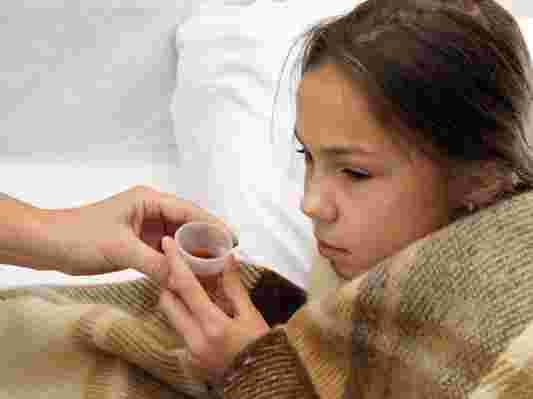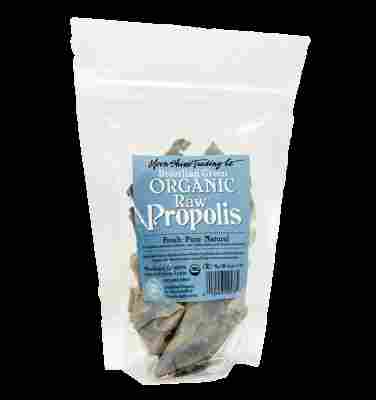What Are The Benefits Of Bee Propolis?
What Are The Benefits Of Bee Propolis? I’ve been reading about bee propolis lately. Seems interesting. Any thoughts?

Bees make propolis, which they use to glue the materials of their hives together, by mixing beeswax and other secretions with resins from the buds of conifer and poplar trees. Those resins have natural germicidal properties. For centuries, people have used propolis on wounds and as a remedy for ailments ranging from acne to cancer, osteoporosis, itching, and tuberculosis. Today, propolis is used in the manufacture of chewing gum, cosmetics, creams, lozenges and ointments and is being investigated as a dental sealant and tooth enamel hardener. A number of studies have tested its effectiveness in humans and animals as a treatment for burns, minor wounds, infections, inflammatory diseases, dental pain, and genital herpes. While promising, the results of these studies are preliminary. (Some of the studies were too small and too poorly designed to yield significant findings.)
However, propolis does have proven antibiotic and antiseptic properties and may also have antiviral and anti-inflammatory effects. I consider it safe and useful as a home remedy. You can find it in various forms in health food stores or get the raw stuff from beekeepers. I recommend it as a good topical treatment for uncomplicated wounds and, when used as a gargle or in spray form, as a remedy for sores and irritations in the mouth. I use propolis in tincture form to treat canker sores and sore throats.
If you have had an allergic or hypersensitivity reaction to bee stings or bee products (including honey), you could react to propolis in the same way. A history of reactions to black popular, poplar bud, or balsam of Peru may also indicate risk of reactions to propolis. In some individuals, frequent use of propolis can also lead to reactions, such as swelling, fluid collection, redness, burning, eczema and fever.
Andrew Weil, M.D.
ORGANIC GREEN BRAZILIAN Raw Propolis
Description

Our ORGANIC GREEN BRAZILIAN RAW PROPOLIS is produced in forested areas of Brazil, far away from industrial activity. We sought out this most potent variety of propolis because we want to offer only the most effective medicinal product. We know that those customers who appreciate the healing properties of Propolis are a discerning bunch, and thus we bring you the most highly sought variety of Raw Propolis available worldwide.
How can I use raw propolis?
How to get the most out of your Raw Propolis experience:
Suck on a chunk for 30 to 45 minutes, to extract as many water soluble substances as possible, such as minerals, amino acids and bee pollen.
Chew our raw propolis together with any kind of vegetal fat containing seeds, such as almonds.
Chew our raw propolis along with some of our bee pollen.
What is Propolis?
Propolis is a magical, sticky, gummy and resinous material collected by honey bees from the buds and bark of trees and shrubs. The bees use this material to fill cracks, fortify their hive and coat the entire inside to protect it from invasion. Similarly, when taken as a tincture, propolis will cover an infected area (sore throat, cut in mouth, cut on skin) with a protective coating while healing at the same time. In our office & warehouse, it’s a popular element of our first aid kit.
Propolis has been known to be a healing substance since ancient times; Aristotle mentions propolis in his “Story of the Animals” and considered it to be a useful remedy for wounds, infections and skin ailments. The recognized antibiotic and antibacterial properties of propolis benefit the bees and their hive in a myriad of ways. Other uses for propolis have included ointments for treating burns, cuts, wounds, and…violin bow resin.
Turkish Journal of Agriculture - Food Science and Technology
Propolis and Potential Use in Food Products

Ezgi Demir Özer
Abstract
Propolis is attracting great interest due to functional effects such as antibacterial, antioxidant and anticancer. Therefore, studies about the use of propolis in food products and increasing propolis consumption in human nutrition have increased in recent years. Propolis contains phenolic compounds, essential oils, aromatic acids and waxes which are responsible for biological effects. Many factors such as plant resources, geographical regions and environmental conditions affect the chemical composition of propolis. Propolis enrichment in food products to improve the nutritional value, quality and functionality of food have been investigated in many studies. Furthermore, it was reported that propolis can meet the demand of consumers about the use of natural food additive in food manufacturing. The aim of the present study was to introduce the physicochemical composition and biological activity of propolis and review the studies about its applications in food products.

